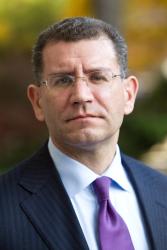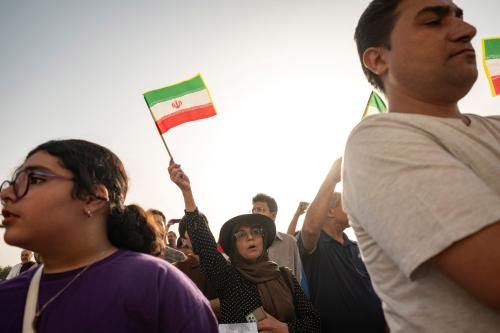

10:00 am EST - 11:30 am EST
Past Event
The events of 2011 have transformed the Middle East, with even seasoned regional observers taken aback by the revolutions that engulfed Tunisia and Egypt and then washed across the rest of the Arab world. The changes set in motion in early 2011 are still reverberating through the region: more regimes have fallen, and even among those that have survived, many have been forced to adopt dramatically new policies. Taken together, these changes herald an epochal shift in the Arab world and the beginning of one of the most important developments of the 21st century. In a new book, The Arab Awakening: America and the Transformation of the Middle East (Brookings Press, 2011), eighteen Brookings experts examine how these historic events happened and what the ramifications will be for the United States and the rest of the world.
On November 17, the Saban Center for Middle East Policy at Brookings hosted the launch of The Arab Awakening with Senior Fellow Kenneth Pollack, director of the Saban Center and Senior Fellow Daniel Byman, director of research of the Saban Center. They, along with additional co-authors, examined the issues that have driven the unrest and revolutions of the Arab world—from public opinion and the rise of the Islamists, to new media and the role of Arab militaries—as well as the impact of the Arab awakening on every country in the Middle East and key external players like China, Europe and the United States.
After the program, the speakers took audience questions.




Pavel K. Baev, Robert Einhorn, Sharan Grewal, Samantha Gross, Ryan Hass, Patricia M. Kim, Elizabeth N. Saunders, Yun Sun, Caitlin Talmadge, Shibley Telhami, Andrew Yeo
July 1, 2025

Suzanne Maloney
June 28, 2025

Suzanne Maloney
June 22, 2025